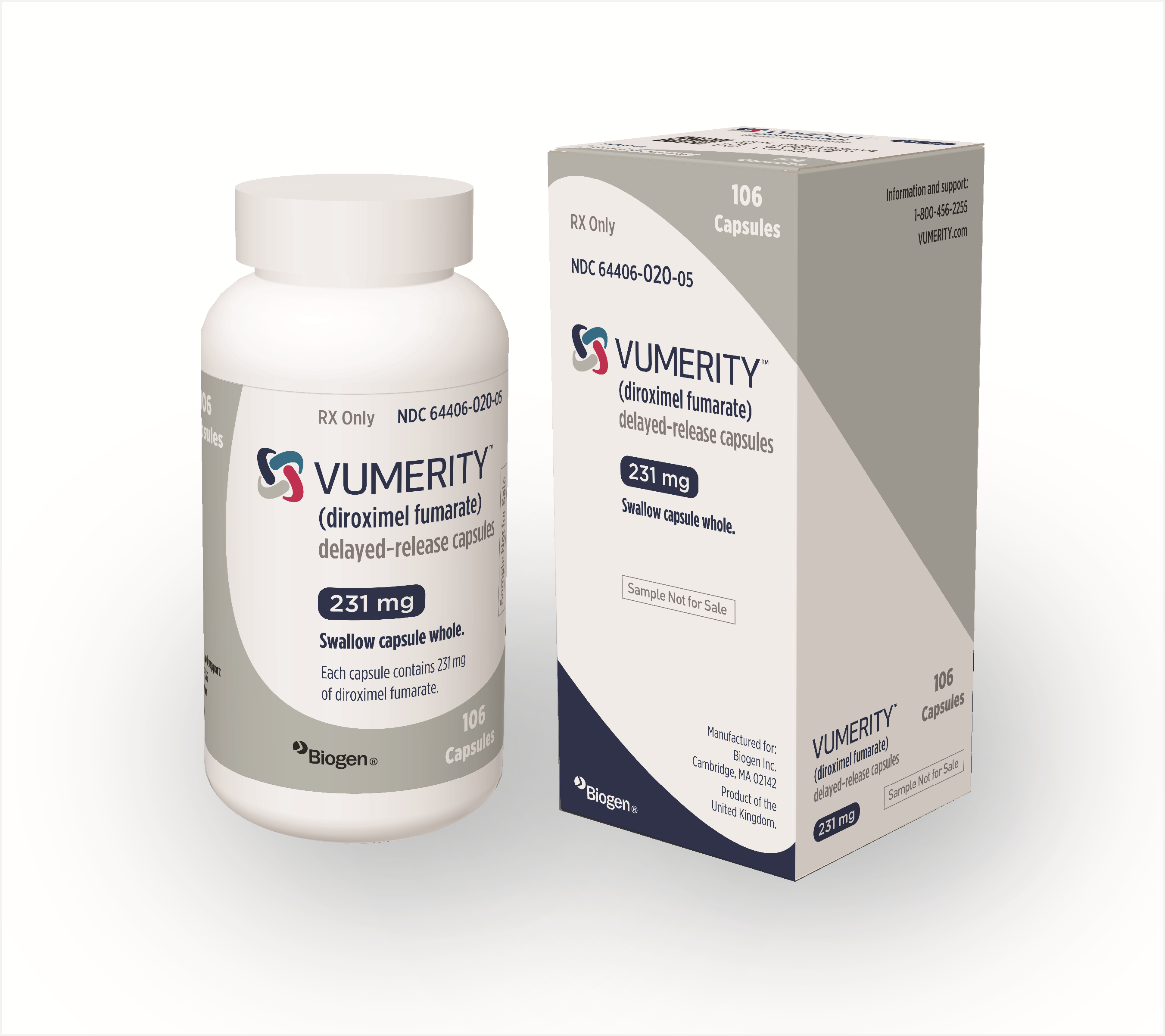Vumerity Approved in US as Treatment for RRMS and Active SPMS
Written by |

The U.S. Food and Drug Administration (FDA) has approved Vumerity (diroximel fumarate) for the treatment of relapsing forms of multiple sclerosis (MS), including clinically isolated syndrome (CIS), relapsing-remitting MS (RRMS), and active secondary progressive disease (SPMS).
Vumerity (previously known as ALKS 8700) was developed by Alkermes in collaboration with Biogen, the latter of which now holds the exclusive worldwide rights to commercialize the therapy.
Taken orally, Vumerity is able to regulate immune responses and lower oxidative stress, helping to prevent the degeneration of myelin (the protective coat of nerve cells) in MS patients without inducing a systemic inhibition of the immune system.
The therapy is rapidly converted into monomethyl fumarate (MMF), and although its mode of action is not fully understood, MMF is believed to have fewer gastrointestinal side effects than Tecfidera (dimethyl fumarate, also marketed by Biogen), an FDA-approved oral therapy for relapsing MS.

Vumerity. Photo credit: Biogen
“The FDA’s approval of Vumerity delivers on Biogen’s commitment to pursue new therapies that may provide meaningful impact for people living with relapsing MS, and we look forward to bringing it to the MS community as an additional treatment option,” Alfred Sandrock, Jr., MD, PhD, executive vice president, research and development, and chief medical officer at Biogen, said in a press release.
“Vumerity is a novel fumarate that offers the well-characterized efficacy of Tecfidera (dimethyl fumarate), and has been studied for improved patient-reported gastrointestinal tolerability,” Sandrock added.
Craig Hopkinson, MD, chief medical officer and senior vice president of medicines development and medical affairs at Alkermes, added: “The approval of Vumerity for relapsing MS marks the culmination of a multi-year development program and is the latest milestone in our mission to develop new treatments for patients living with chronic central nervous system disorders.
“We are grateful to the patients and study investigators who have participated in our Vumerity clinical trials, and we look forward to working with our collaboration partners at Biogen to make this new treatment available to patients,” Hopkinson said.
The FDA’s decision to approve Alkermes’ new drug application was based in part on data from the pivotal Phase 3 EVOLVE-1 clinical trial (NCT02634307) that showed the long-term safety and effectiveness of the therapy, given twice daily, in patients with RRMS. The trial is still ongoing at more than 100 sites in the U.S. and Europe.
Data collected after one year of treatment showed an 83% decline in the adjusted annualized relapse rate from baseline in patients newly diagnosed with MS, while for patients who had been treated previously, the adjusted annualized relapse rate decreased by 72%.
In addition, preliminary data from brain magnetic resonance imaging (MRI) scans revealed that patients had significantly fewer active brain lesions after 48 weeks of treatment with Vumerity.
Other studies comparing Vumerity with Tecfidera, namely the EVOLVE-MS-2 trial (NCT03093324), further showed that Vumerity was generally safe and well tolerated, with patients having fewer gastrointestinal reactions and no reports of serious side effects. The most common side effects associated with the treatment included flushing (redness of the skin, normally in the neck and cheeks), nausea, and diarrhea.
“MS is a heterogeneous disease, and real-world patient circumstances can vary, reinforcing the benefits of having therapeutic choices to support the diverse range of treatment considerations,” said Robert Naismith, MD, a professor of neurology at Washington University School of Medicine in St. Louis. “Throughout its clinical development program, Vumerity has demonstrated a desirable therapeutic profile, making it a compelling new option for patients.”
Bruce Bebo, PhD, executive vice president, research at the National MS Society, concluded: “MS is a lifelong disease that has a significant impact on the people affected and their caregivers. We are encouraged by the progress being made in the treatment of MS, and pleased that another treatment option will soon be available. It’s important for people with MS to have treatments that are both efficacious and tolerable to help manage their disease.”


